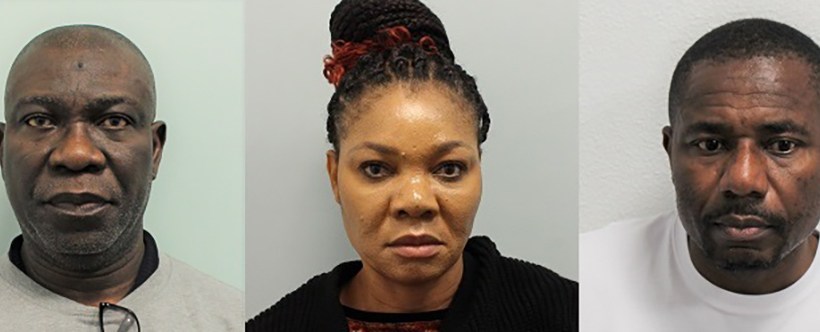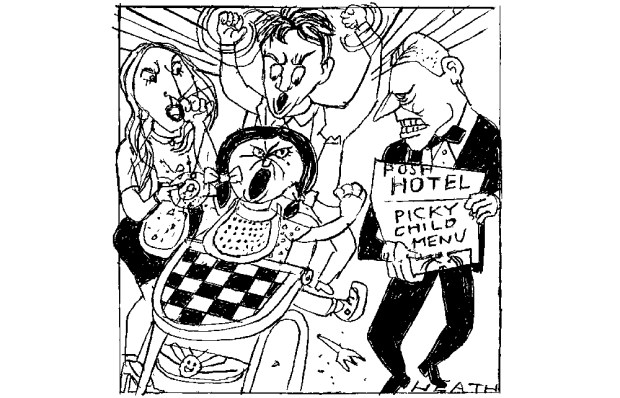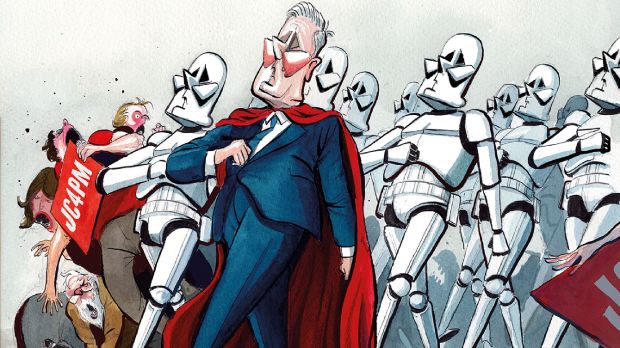Here is your dilemma. Imagine you have a university-age daughter who has developed kidney failure. She needs a transplant. You know that the best results are obtained when the operation is performed at a transplant unit with access to the best immunosuppressive drugs, when the kidney is taken from a living donor, and especially when that donor is young and from a similar ethnic background to the recipient. Like most parents, you will go to almost any lengths to help your child – but would you break the law?
Ike Ekweremadu thought that the risks of breaking the law in the UK were worth taking to gain the best outcome for his daughter. His plan failed, and on 23 March he, his wife Beatrice and their middleman, Dr Obinna Obeta, a Nigerian doctor living in Southwark, were found guilty of transporting a young man from Nigeria for purposes of organ donation in violation of the Modern Slavery Act. As a recently retired surgeon, I was fascinated by the case and spent weeks in the public gallery of Court 5 at the Old Bailey.
Ike is a powerful and influential politician in the Nigerian parliament. He was first elected a senator in 2003 and was deputy president of the Senate for three consecutive sessions from 2007 to 2019. As a title of respect, he is known as ‘Chief’. He is extremely wealthy and has about 40 homes in Nigeria, Dubai, America and the UK. His four children were educated in British private schools.
Ike has a doctor brother called Diwe, who was a classmate of Obeta in medical school. Obeta had a contact in Nigeria who has access to a panel of potential donors. A suitable kidney donor was found, referred to in the trial as ‘C’. His name cannot be disclosed. C was an impoverished 21-year-old street trader from Lagos who sold mobile phone accessories from a barrow. The £7,000 reward offered for the kidney was equal to four years of earnings from the barrow, although that’s pocket money for the Ekweremadus, who would also pay £80,000 for the private transplant operation at Royal Free Hospital.
A passport and visa were arranged for C. The visa stated that he was Beatrice’s sister’s son, which was not true. C was brought to London in February last year and stayed at Obeta’s home. He was coached to provide false answers at the Royal Free interview. It was important for him to understand that altruistic kidney donation is legal in UK but not if money or material advantage is exchanged.
C was rejected as a donor by the Royal Free nephrologist, who was not convinced that he and Ike’s daughter were first cousins. C, who spoke poor English, also appeared to have only a limited understanding of what was happening. After 11 weeks in London, C was told that he would be returned to Nigeria but without any of the payment promised. He absconded. Three days later, he turned up at Staines police station, and told his story – that he had been trafficked from Nigeria for kidney donation.
The Ekweremadus were arrested at Heathrow airport as they returned from Turkey where they had possibly been trying to arrange another transplant. Their phones and devices were seized, which revealed every last detail of the conspiracy.
During the trial, it was obvious that the conspirators regarded C as a disposable asset. They had thought it better to buy a kidney rather than ask a family member to donate. In a press release after the conviction, the Chief Crown Prosecutor said: ‘This was a horrific plot to exploit a vulnerable victim. The convicted defendants showed utter disregard for the victim’s welfare, health and wellbeing.’
Obeta was jailed for ten years and Ike for nine years and eight months, both to serve two thirds of their sentence in custody before being released on licence. Despite a desperate plea from her barrister that Beatrice should receive a deferred sentence to care for her daughter, she was jailed for four years and six months, only half in custody.
C has declared that he would be scared to return to Nigeria, fearing retribution. At the sentencing hearing he refused to claim compensation from the accused, who he described as bad people. He was said to be living alone in London reconstructing his life. Hopefully, he will be granted asylum given his bravery in appearing as a prosecution witness in this trial.
So back to you, reader. Where do you stand on the moral and ethical arguments for and against the sale and purchase of kidneys for transplantation? It is illegal in all countries except for Iran, although tolerated in some others.
In Iran, kidneys can be sold legally, and consequently there is no waiting list for a transplant. A government agency runs a register for buyers and sellers and also oversees the matching process. Kidneys are then sold for a fixed price of about 5,000 US dollars. Tens of thousands of transplants have been facilitated in this way.
Illegal organ trafficking happens all over the world. It was described in court as an industry. The World Health Organisation has estimated that more than 10,000 kidneys are traded every year, more than one every hour. Trafficking happens mainly in low-income countries where cadaveric donorship is not established, or where kidney dialysis is not available, too expensive or unsafe. In that case, the choice may be between either buying a kidney or death.
In high-income countries, buying a kidney for transplantation isn’t just illegal, it is usually considered immoral and unethical by the medical profession, ethicists and armchair ethicists alike. The reasons given include the potential coercion and exploitation of vulnerable people and the possible harm done to the donor by having an unnecessary operation. While these are valid and reasonable concerns, they are held from the cosy comfort of a society where kidney dialysis is readily available and a transplant usually possible after a short wait.
The factors which limit survival of the transplanted kidney is the availability of medical expertise and the cost of the best drugs for immunosuppression, which may amount to £2,000 per month or more. This is one of the reasons why the recipient of a transplanted live-donor kidney may only survive for two to five years in a low-income country, compared with 20 to 25 years in a high-income country.
Finally, back to Chief Ike Ekweremadu. If he wishes to atone for his horrific treatment of C while he is in prison, and while his daughter still waits for a transplant, then establishing a world-class nephrology and transplant unit in Lagos would be a fitting act of repentance.
Got something to add? Join the discussion and comment below.
Get 10 issues for just $10
Subscribe to The Spectator Australia today for the next 10 magazine issues, plus full online access, for just $10.
You might disagree with half of it, but you’ll enjoy reading all of it. Try your first month for free, then just $2 a week for the remainder of your first year.














Comments
Don't miss out
Join the conversation with other Spectator Australia readers. Subscribe to leave a comment.
SUBSCRIBEAlready a subscriber? Log in